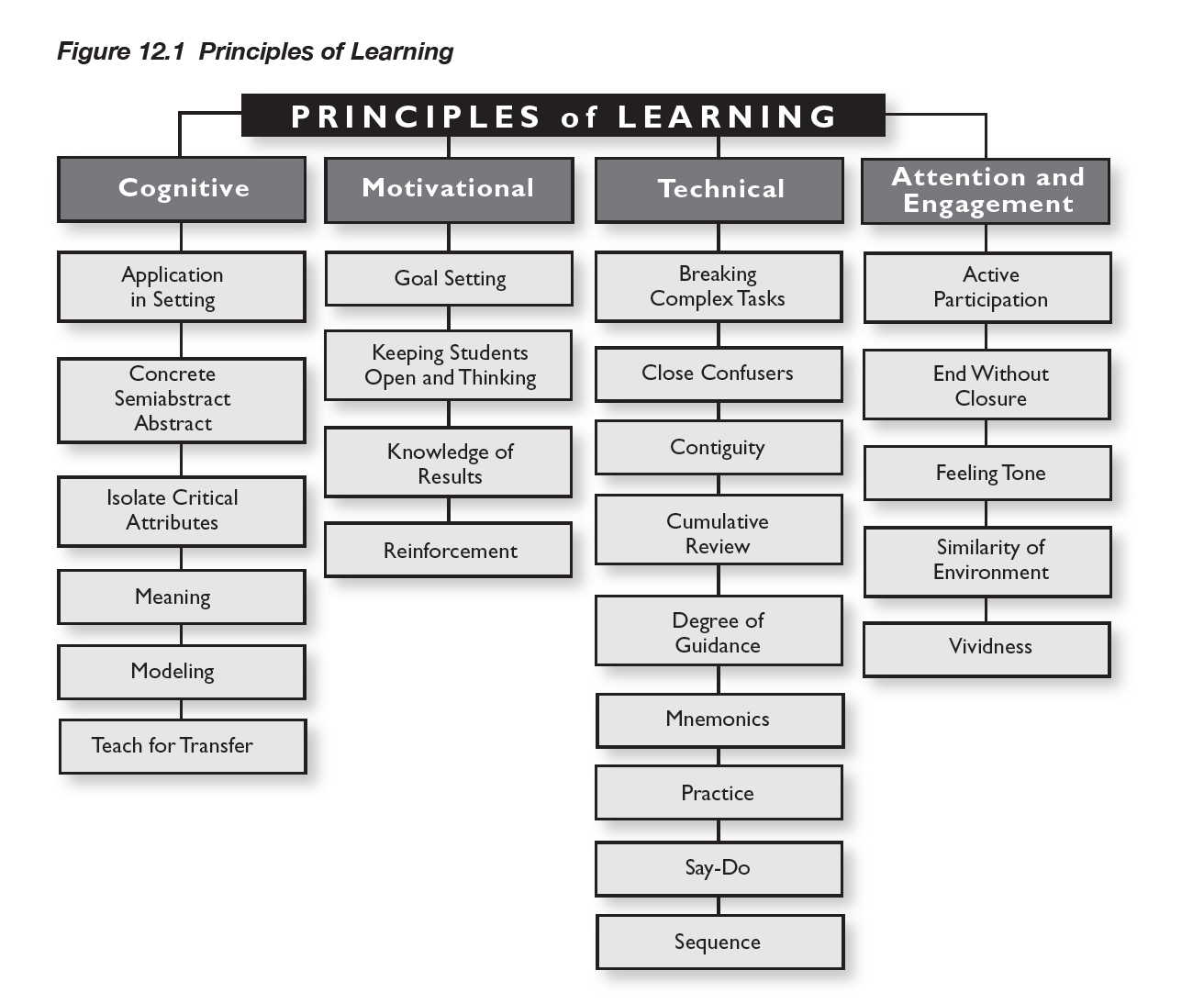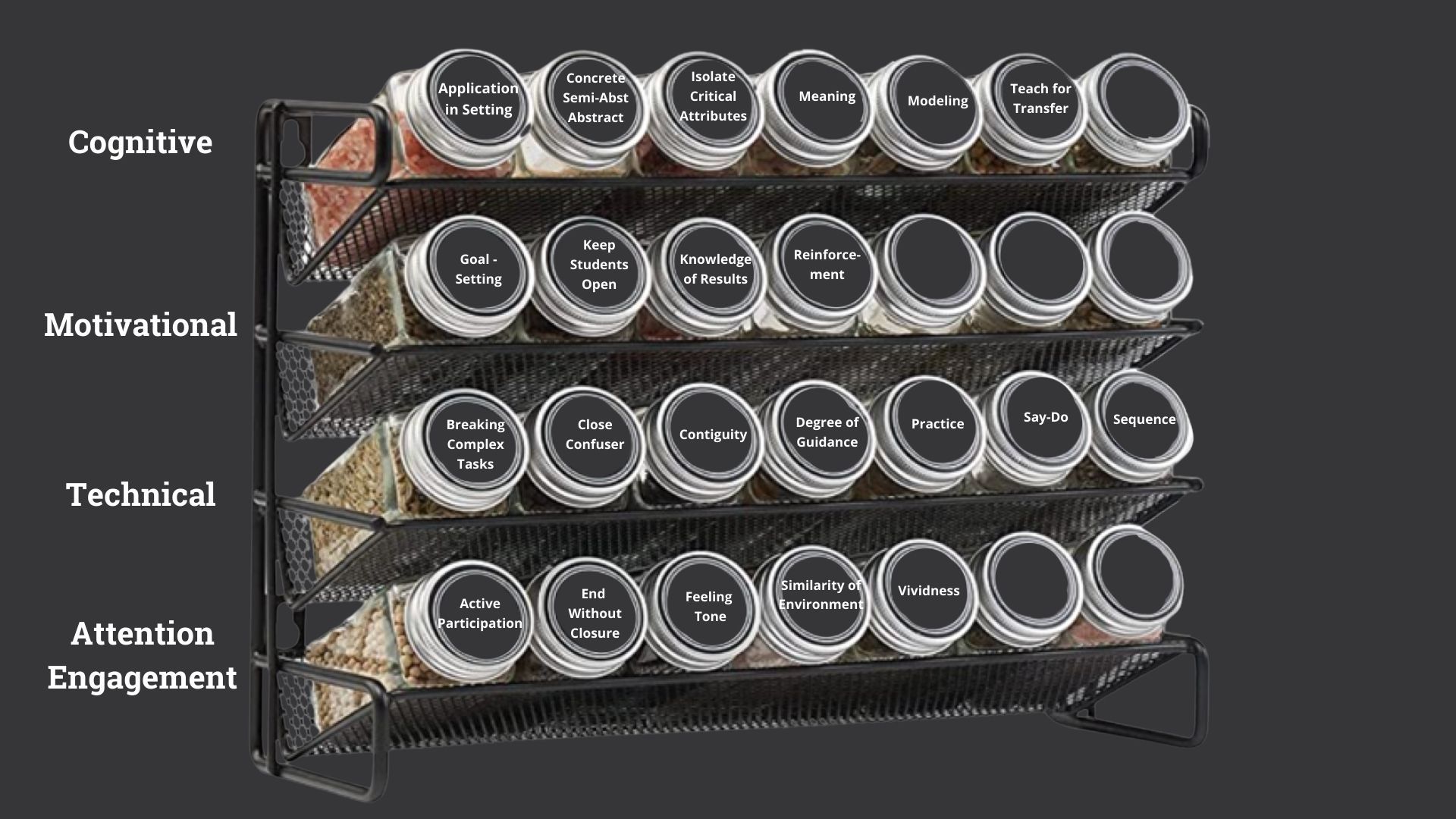The Power of Student Goal Setting
Principles of Learning: How do I design more efficient and effective learning experiences? |

Source: Jon Saphier, Mary Ann Haley-Speca, and Robert Gower. 2018. The Skillful Teacher: The Comprehensive Resource for Improving Teaching and Learning, 7th ed, Acton, MA: Research for Better Teaching.
The 24 Principles of Learning
The Principles of Learning are 24 guidelines for designing learning experiences to increase the rate and durability of learning by:
- Enhancing cognitive impact
- Influencing motivation
- Addressing technical aspects of design
- Impacting student attention & engagement
Some of these Principles apply to —and can be used regularly in—most every lesson, but just like spices, they should be used selectively - matching not only the content, but also the students and the situational context.

It’s not the more the better ... It’s knowing what they are so we can apply them strategically to design gourmet learning experiences for our students. |
Goal-Setting
As we head into 2023, many of us may be thinking of setting some personal goals.
We encourage you to also take a moment to consider the power of getting your students involved in their own academic goal setting - a powerful, but largely underutilized Motivational Principle of Learning.
The main tenets of goal setting are:
- When students get involved in goal setting for their own learning, they learn more.
- Student goal setting will not happen by itself. Teachers have to do something to facilitate the process.
- Student goal setting does not automatically lead to increased student performance. Certain conditions and properties need to be part of the process.
- Students will need guidance about setting goals that are:
- Challenging but attainable
- Written down
- Able to be accomplished in the near term
- Owned by the student: reflect desire and commitment of the student to work on the goal.
- Revisited with progress assessed and evaluated by the student
A common misconception about getting students to set goals is that teachers relinquish control over making assignments and students choose what they will study. Instead it means that student goals are set around personal commitments they make to improving speed, quantity, or quality in some aspect of their work or performance.
If we devoted just a little time and energy to guiding students through a meaningful goal-setting process, we might see big payoffs in student performance and in students’ direct learning about self-regulation and self-evaluation.
Give it a try in 2023 and let us know how it goes!
References
- See pages 274-276 of The Skillful Teacher for more on Goal Setting
- All 24 Principles of Learning can be found in Chapter 12. Be sure to check out the TST7 Resource Page for additional materials.
- This topic is included in our Studying Skill Teaching course.